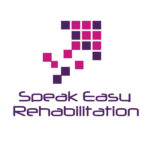In education and youth support, recognizing and respecting neurodiversity is essential for fostering environments where every child can thrive. Neurodiversity encompasses a range of cognitive differences, including autism, ADHD, dyslexia, and more—each bringing unique perspectives, strengths, and ways of learning. For children and young people, especially, these differences can impact how they experience the world and navigate school, relationships, and personal growth. Understanding and affirming these experiences is a vital step in creating supportive spaces that nurture each child’s potential.
In this article Raelene Dundon presents seven guiding principles for working with neurodiverse children and young people, offering educators, parents, and caregivers practical approaches to create inclusive, respectful, and empowering environments. By applying these principles, we can help neurodiverse children feel understood, supported, and celebrated for who they are, setting a foundation for their long-term success and well-being. Whether you’re an educator, a youth worker, or a family member, these strategies can guide you in fostering a truly neurodiversity-affirming approach.

